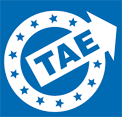Eurobonds, Corona Bonds, Community of Debt – Europe’s Crossroads?”
More and more, higher and higher. This is how one could describe the programmes currently drawn up - nationally as well as by the EU - in order to overcome the effects of the Corona crisis. A billion is becoming the smallest unit of account. The European Central Bank (ECB) is currently increasing the volume of the Pandemic Emergency Purchase Programmes (PEPP) by a further 600 billion Euro to a total of 1.35 trillion Euro. At the same time the programme is extended until at least the middle of 2021.
Although the 540 bn Euro Corona funds already provided:
- by the European-Stability-Mechanism (ESM) 240 bn. Euro,
- by the European Investment Bank (EIB) 200 bn. Euro as well as
- by the EU-Commission (Sure) 100 bn. Euro
have not even been not even been exhausted, the European Commission just recently has drawn up a further comprehensive reconstruction programme with a total volume of 750 bn. €. This money is supposed to be procured in the capital market and the 27 member states are supposed to collectively guarantee it. The repayment is advised starting in 2028 (for the next but one EU financial framework) and is supposed to be completed by 2058. With this the EU will for the first time enter into long-term debt.
This is then garnished with the demand for more harmonisation, EU banking liability, long-term EU indebtedness and - not surprisingly- higher taxes and separate EU taxes.
Currently, these corona packages already add up to more than 2.6 trillion euros. This does not include further trillions of EU projects (Green Deal, digitalization, health, etc.), the Target II balances of the ECB and the aid and programmes that are being set up nationally. If all this were added together, we would be talking about an additional financial framework that easily exceeds the 7 trillion Euro mark. In the interests of the taxpayers in Europe, it is high time we talked about these figures.
While the southern member states campaign for aids, the northern member states (with Sweden, Denmark, the Netherlands and Austria - “the frugal four” - leading the way) insist on appropriated funds with clearly dated repayments. On the one side one demands more European (financial) solidarity, on the other side more budgetary discipline and will to reform.
Europe finds itself at the crossroads!
No matter how the negotiations turn out in the end, “Next Generation Europe” and the other Corona aids will permanently change the European Union. The crucial question is: In what way?
With this summary of the intended means that are now being called up in order to cope with the Corona pandemic and for further programmes, we want to offer some food for thought in order to not gamble away the capacity to act for future generations.



